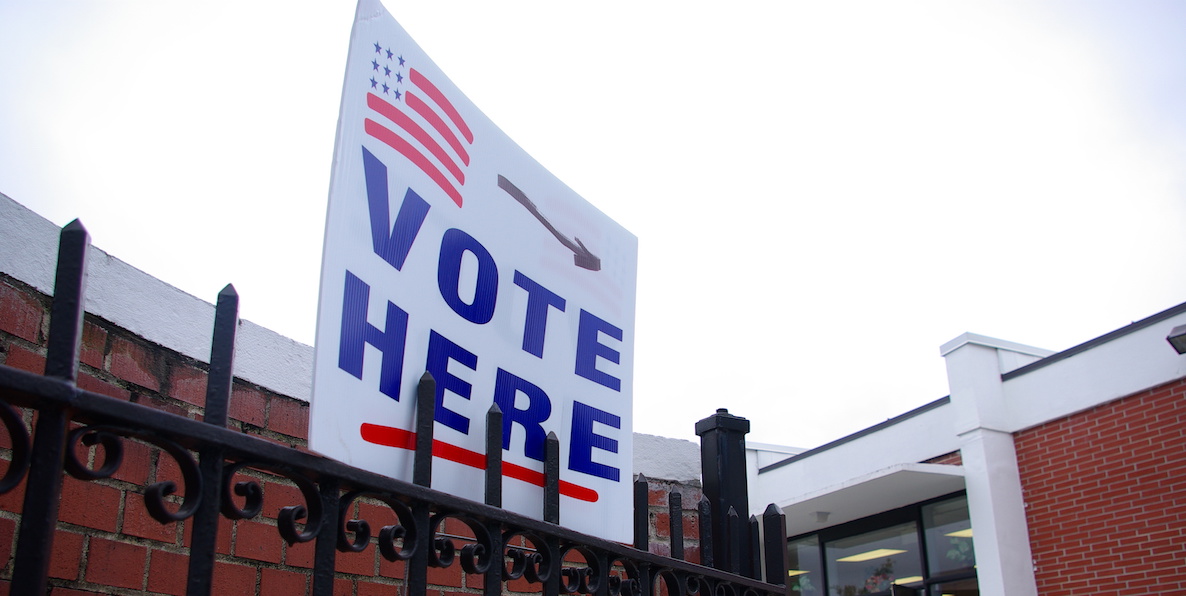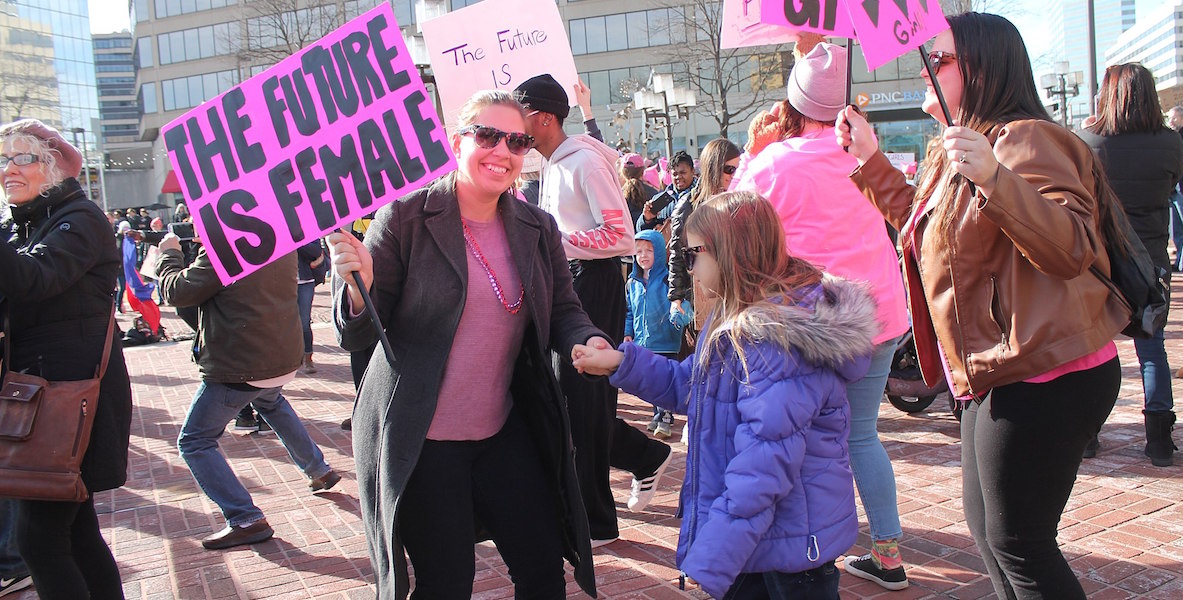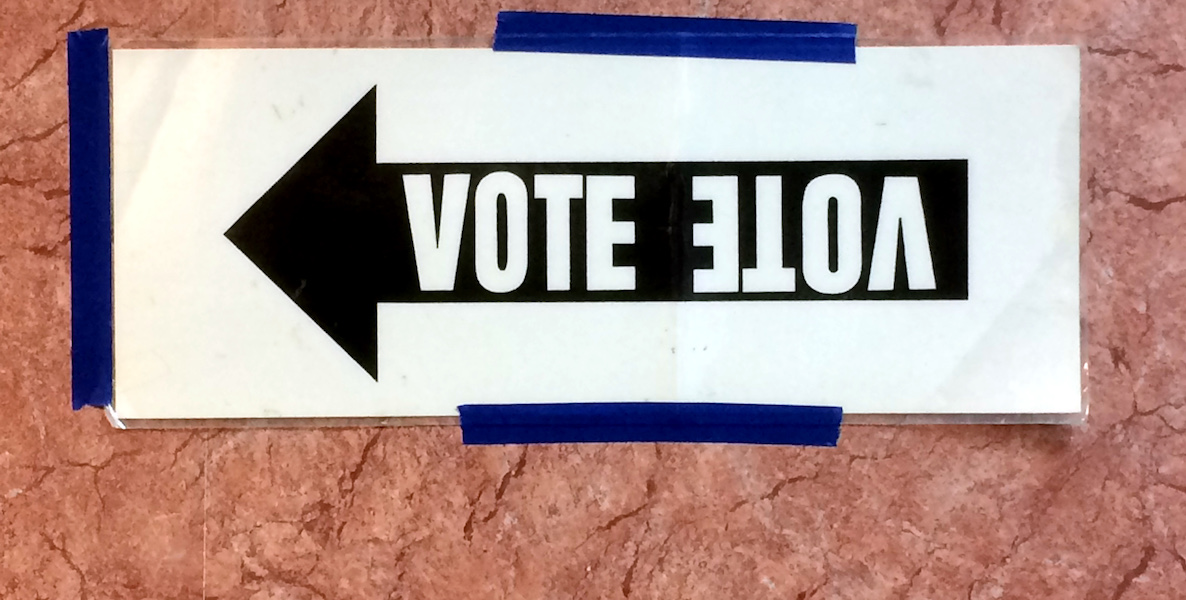We were so hopeful on May 14th, the day before this year’s primary election. We felt the surge in political outrage, the energy behind efforts to get more people running for office, the call to arms—seemingly—for changing the system by changing who runs it, voting out the old and in with the new.
And then, as has become usual, there was the post-election letdown. Only 17 percent of us actually cared enough about any of those things to show up and cast a ballot. It is, as watchdog group Committee of Seventy’s David Thornburgh puts it, a bit like Charlie Brown and his football. “We think this time, we’re really going to do it, we’re going to kick the ball,” Thornburgh says. “And then Lucy pulls it away again at the last second.”
Be Part of the Solution
Become a Citizen member.Cue the usual handwringing, followed by the usual echo chamber of scolding from media outlets (including this one), followed by another election cycle and another pulled football. This is getting tiresome.
It is of some small comfort, perhaps, to know that Philly is not alone in its voting malaise. In New York City last November, just under 22 percent of voters came out to cast a ballot in an election that gave Mayor Bill de Blasio his second term—a slight increase from 2013’s numbers, but a paltry showing nonetheless. Concerned election watchers in New York had the same cycle of hope and disappointment, the same heartsinking deja vu.
But unlike in Philly, New York City is doing something about it.
In his State of the City speech in January, Mayor de Blasio unveiled DemocracyNYC, a 10 point plan to increase voting and civic engagement in America’s biggest city. The initiatives range from election reforms to Census accuracy to government transparency; taken all together they could create a
more informed, more willing electorate with an easier path to voting and a clearer sense that their vote matters. In other words, it could turn a failing democracy into one that actually works again.
“Whether we like it or not, democracy is something each generation must earn,” de Blasio said. “In my entire lifetime I have never felt our democracy as in peril as I do today. I’ve never seen such rampant inequality as I see today. But I have to tell you, I still got plenty of hope. And I think you should, too. Because what we’ve learned is the people can demand change and the people can ensure that that change actually happens.”
DemocracyNYC, when fully set up, will be a small office, more a coordinating center led by a Chief Democracy Officer that works with different city departments and nonprofits to span the civic engagement spectrum. On voting, the goal is to register 1.5 million people in the next four years, with a particular emphasis on young people. To that end, de Blasio last month hosted 3,000 public and charter schools at an event at which the city registered thousands of 18 and soon-to-be 18 year olds. De Blasio has also established a Charter Revision Commission to suggest changes that could make voting easier, particularly when it comes to access and language. And the city has increased lobbying efforts in Albany to change state rules to allow for early voting, lowered voting age and same day registration, among other reforms.
But the work also includes efforts to create a more engaged citizenry outside of the ballot box. Already, DemocracyNYC has overseen the launch of a publicly searchable database to help residents keep track of which lobbyists are meeting with city officials—a way to have a more educated ![]() electorate. The city also plans to launch a web portal that is a one-stop shop for information about community groups, running for office, and joining school advisory councils. It will work with schools to ensure civics are taught in every New York City public school. And it is launching a wide-spanning effort to get all New Yorkers filling out the 2020 federal census, to ensure they are counted.
electorate. The city also plans to launch a web portal that is a one-stop shop for information about community groups, running for office, and joining school advisory councils. It will work with schools to ensure civics are taught in every New York City public school. And it is launching a wide-spanning effort to get all New Yorkers filling out the 2020 federal census, to ensure they are counted.
None of the points in the 10-point plan directly address turnout—actually getting people to cast a vote. But research around voting shows over and over that engaged citizens, with the right education and the right tools, are those who vote. Once they vote, they do it again and again. “We’re having conversations with people in the city about what the role of voting is, and what democracy means, and what the connection is between the two,” says Nisha Agarwal, who oversees DemocracyNYC for Deputy Mayor Phil Thompson. “It’s helpful in this moment to get people that much more engaged, but it’s something we should always have been thinking about.”
It is a refreshing way to wield politics, by trying to get more people involved in politics. It seems the exact opposite of what we have in Philly, where elected officials are happy to have fewer people vote since that means fewer people to potentially vote them out of office.
That this comes from City Hall—under the auspices of an elected mayor—can make it seem political; and perhaps it is, though de Blasio has already started the second term of his two term Mayoralty. But it is a refreshing way to wield politics, by trying to get more people involved in politics. It seems, in fact, the exact opposite of what we have in Philly, where elected officials are happy to have fewer people vote since that means fewer people to potentially vote them out of office. That small-minded thinking, though, leads to a paucity of civic engagement, at the polls and outside of it, that has far-ranging consequences; just look at our last presidential election, if you need a stark example.
![]()
To be clear, we already have an organization whose job it is to make our elections work—the elected City Commissioners. They run our elections, count our votes, register voters, release information about polling places, handle irregularities at the polls, punt on buying new machines and in the case of one, only occasionally show up to work. But they don’t run voting drives; they don’t actively work to get voters to the polls. Perhaps that’s the inevitable result of having elected people run elections; with one Republican and two Democrats in the office, they could easily be accused of swaying a race by increasing turnout in a blue- or red-leaning district. “It’s a consequence of the fact that folks in those offices are finely tuned to the politics in those offices,” Thornburgh notes.
Still, the alternative can’t be to do nothing. As de Blasio said, “We can’t keep doing things the same backward way and somehow expect a better result.” As in the case of New York, change requires a shift in how our highest elected officials think about voting, and what it means to be a democracy today, and how their constituents connect to the civic institutions that govern our society. Could a DemocracyPHL encourage libraries and public health centers to also connect residents to their neighborhood associations? Could it push every city department to register residents to vote as part of the services offered? Could a Mayoral-led school board insist on making civics education part of every Philly public school curriculum?
None of the points in the 10-point plan directly address turnout—actually getting people to cast a vote. But research around voting shows over and over that engaged citizens, with the right education and the right tools, are those who vote. Once they vote, they do it again and again.
And, could Mayor Kenney rouse us all to action, the way de Blasio is engaging his residents? DemocracyNYC’s web site opens with a statement and a question: “We want to make NYC the fairest big city in America. And to do that we need to strengthen our Democracy. Will you join the fight?” There follows a checklist of actions New Yorkers can promise to take, from getting the word out on the Census to holding a voter registration event. Would Philadelphians join a similar movement if their Mayor asked? I’d like to think so.
As de Blasio said after he laid out his plans for DemocracyNYC, “There’s a very powerful phrase in the recovery movement that can be said about democracy as well: ‘It works if you work it.’”






